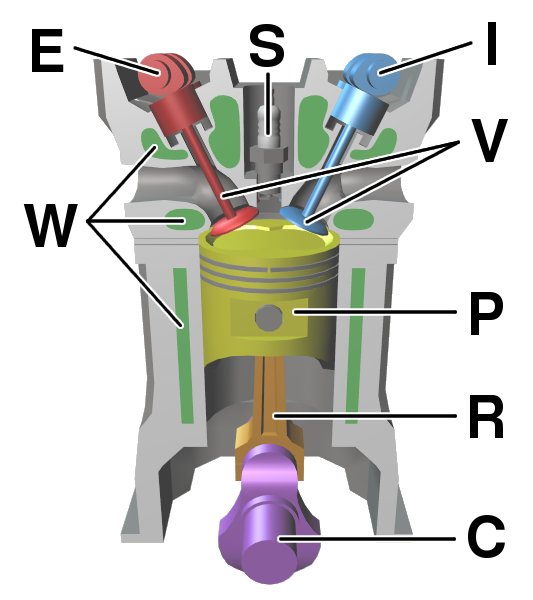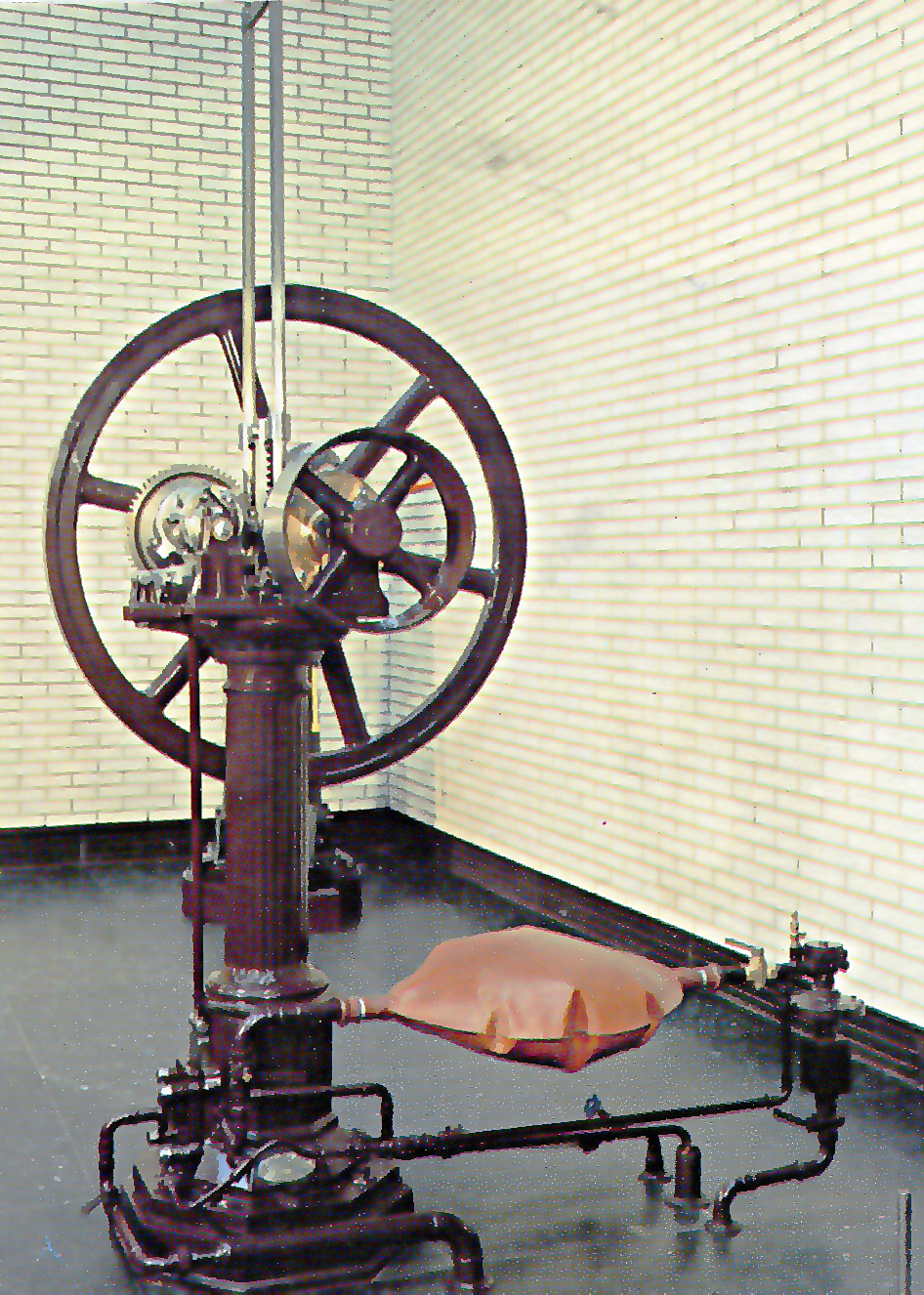|
Carl Becker (marine Painter)
Carl Emil Rudolf Ludwig Becker (31 August 1862, Hamelin12 February 1926, Hamburg) was a German marine artist. Life and work His father was a military doctor. In 1866, as a result of the annexation of the Kingdom of Hanover by the Kingdom of Prussia, his father was transferred to Altona (now part of Hamburg), where he grew up. He attended the realschule there, and received his first art lessons from the marine painter, . In 1887, he enrolled at the Kunstakademie Düsseldorf. Until 1893, he was a student of the landscape painter, Eugen Dücker, He also studied engraving and etching with Carl Ernst Forberg. He was awarded gold medals at the International Art Exhibition of 1894, in Vienna, and the Große Berliner Kunstausstellung of 1896. Three years later, he was one of the co-founders of the (artists' association). After the turn of the century, marine painting was heavily promoted by Kaiser Wilhelm II, who was attempting to make Germany a major sea power. As a result, the ... [...More Info...] [...Related Items...] OR: [Wikipedia] [Google] [Baidu] |
Große Berliner Kunstausstellung
Große Berliner Kunstausstellung (Great Berlin Art Exhibition), abbreviated GroBeKa or GBK, was an annual art exhibition that existed from 1893 to 1969 with intermittent breaks. In 1917 and 1918, during World War I, it was not held in Berlin but in Düsseldorf. In 1919 and 1920, it operated under the name Kunstausstellung Berlin. From 1970 to 1995, the '' Freie Berliner Kunstausstellung'' (Free Berlin Art Exhibition) was held annually in its place. The exhibition Wilhelminian Era Until the 1890s, with the exception of the International Art Exhibition of 1891, for more than a hundred years the Fine Arts Section of the Royal Academy of Arts organised and ran the Academic Art Exhibitions. The first Great Berlin Art Exhibition took place in 1893 on the basis of the statutes of a reorganisation of its internal relations, which was approved by Kaiser Wilhelm II. From then on, the entirety of the Berlin artistic community was to take over the art exhibition, represented by the Coopera ... [...More Info...] [...Related Items...] OR: [Wikipedia] [Google] [Baidu] |
German Marine Artists
German(s) may refer to: * Germany (of or related to) **Germania (historical use) * Germans, citizens of Germany, people of German ancestry, or native speakers of the German language ** For citizens of Germany, see also German nationality law ** Germanic peoples (Roman times) * German language **any of the Germanic languages * German cuisine, traditional foods of Germany People * German (given name) * German (surname) * Germán, a Spanish name Places * German (parish), Isle of Man * German, Albania, or Gërmej * German, Bulgaria * German, Iran * German, North Macedonia * German, New York, U.S. * Agios Germanos, Greece Other uses * German (mythology), a South Slavic mythological being * Germans (band), a Canadian rock band * "German" (song), a 2019 song by No Money Enterprise * '' The German'', a 2008 short film * " The Germans", an episode of ''Fawlty Towers'' * ''The German'', a nickname for Congolese rebel André Kisase Ngandu See also * Germanic (disambi ... [...More Info...] [...Related Items...] OR: [Wikipedia] [Google] [Baidu] |
19th-century German Painters
The 19th (nineteenth) century began on 1 January 1801 ( MDCCCI), and ended on 31 December 1900 ( MCM). The 19th century was the ninth century of the 2nd millennium. The 19th century was characterized by vast social upheaval. Slavery was abolished in much of Europe and the Americas. The First Industrial Revolution, though it began in the late 18th century, expanding beyond its British homeland for the first time during this century, particularly remaking the economies and societies of the Low Countries, the Rhineland, Northern Italy, and the Northeastern United States. A few decades later, the Second Industrial Revolution led to ever more massive urbanization and much higher levels of productivity, profit, and prosperity, a pattern that continued into the 20th century. The Islamic gunpowder empires fell into decline and European imperialism brought much of South Asia, Southeast Asia, and almost all of Africa under colonial rule. It was also marked by the collapse of the l ... [...More Info...] [...Related Items...] OR: [Wikipedia] [Google] [Baidu] |
1926 Deaths
Nineteen or 19 may refer to: * 19 (number), the natural number following 18 and preceding 20 * one of the years 19 BC, AD 19, 1919, 2019 Films * ''19'' (film), a 2001 Japanese film * ''Nineteen'' (film), a 1987 science fiction film Music * 19 (band), a Japanese pop music duo Albums * ''19'' (Adele album), 2008 * ''19'', a 2003 album by Alsou * ''19'', a 2006 album by Evan Yo * ''19'', a 2018 album by MHD * ''19'', one half of the double album '' 63/19'' by Kool A.D. * '' Number Nineteen'', a 1971 album by American jazz pianist Mal Waldron * ''XIX'' (EP), a 2019 EP by 1the9 Songs * "19" (song), a 1985 song by British musician Paul Hardcastle. * "Nineteen", a song by Bad4Good from the 1992 album ''Refugee'' * "Nineteen", a song by Karma to Burn from the 2001 album ''Almost Heathen''. * "Nineteen" (song), a 2007 song by American singer Billy Ray Cyrus. * "Nineteen", a song by Tegan and Sara from the 2007 album '' The Con''. * "XIX" (song), a 2014 song by S ... [...More Info...] [...Related Items...] OR: [Wikipedia] [Google] [Baidu] |
1862 Births
Year 186 ( CLXXXVI) was a common year starting on Saturday (link will display the full calendar) of the Julian calendar. At the time, it was known as the Year of the Consulship of Aurelius and Glabrio (or, less frequently, year 939 ''Ab urbe condita''). The denomination 186 for this year has been used since the early medieval period, when the Anno Domini calendar era became the prevalent method in Europe for naming years. Events By place Roman Empire * Peasants in Gaul stage an anti-tax uprising under Maternus. * Roman governor Pertinax escapes an assassination attempt, by British usurpers. New Zealand * The Hatepe volcanic eruption extends Lake Taupō and makes skies red across the world. However, recent radiocarbon dating by R. Sparks has put the date at 233 AD ± 13 (95% confidence). Births * Ma Liang, Chinese official of the Shu Han state (d. 222) Deaths * April 21 – Apollonius the Apologist, Christian martyr * Bian Zhang, Chinese official and ... [...More Info...] [...Related Items...] OR: [Wikipedia] [Google] [Baidu] |
Allgemeines Künstlerlexikon
Thieme-Becker is a German biographical dictionary of artists. Thieme-Becker The dictionary was begun under the editorship of Ulrich Thieme (1865–1922) (volumes one to fifteen) and Felix Becker (1864–1928) (volumes one to four). It was completed under the editorship of Frederick Charles Willis (b. 1883) (volumes fourteen and fifteen) and Hans Vollmer (1878–1969) (volumes sixteen to thirty-seven)."The Project: From Thieme-Becker to the Artists’ Database," GmbH.Heinz Ladendorf, "Das Allgemeine Lexikon der bildenden Künstler Thieme-Becker-Vollmer," in Magdalena George (ed.), ''Festschrift Hans Vollm ... [...More Info...] [...Related Items...] OR: [Wikipedia] [Google] [Baidu] |
Internal Combustion Engine
An internal combustion engine (ICE or IC engine) is a heat engine in which the combustion of a fuel occurs with an oxidizer (usually air) in a combustion chamber that is an integral part of the working fluid flow circuit. In an internal combustion engine, the expansion of the high- temperature and high- pressure gases produced by combustion applies direct force to some component of the engine. The force is typically applied to pistons (piston engine), turbine blades ( gas turbine), a rotor (Wankel engine), or a nozzle (jet engine). This force moves the component over a distance, transforming chemical energy into kinetic energy which is used to propel, move or power whatever the engine is attached to. This replaced the external combustion engine for applications where the weight or size of an engine was more important. The first commercially successful internal combustion engine was created by Étienne Lenoir around 1860, and the first modern internal combustion engine, ... [...More Info...] [...Related Items...] OR: [Wikipedia] [Google] [Baidu] |
Nicolaus Otto
Nicolaus August Otto (10 June 1832, Holzhausen an der Haide, Nassau – 26 January 1891, Cologne) was a German engineer who successfully developed the compressed charge internal combustion engine which ran on petroleum gas and led to the modern internal combustion engine. The Association of German Engineers (VDI) created DIN standard 1940 which says "Otto Engine: internal combustion engine in which the ignition of the compressed fuel-air mixture is initiated by a timed spark", which has been applied to all engines of this type since. Biography Nicolaus August Otto was born on 10 June 1832 in Holzhausen an der Haide, Germany. He was the youngest of six children. His father died in 1832. He began school in 1838. After six years of good performance he moved to the high school in Langenschwalbach until 1848. He did not complete his studies but was cited for good performance. His main interest in school had been in science and technology but he graduated after three years as a ... [...More Info...] [...Related Items...] OR: [Wikipedia] [Google] [Baidu] |
Exposition Universelle (1900)
The Exposition Universelle of 1900, better known in English as the 1900 Paris Exposition, was a world's fair held in Paris, France, from 14 April to 12 November 1900, to celebrate the achievements of the past century and to accelerate development into the next. It was held at the esplanade of Les Invalides, the Champ de Mars, the Trocadéro and at the banks of the Seine between them, with an additional section in the Bois de Vincennes, and it was visited by more than 50 million people. Many international congresses and other events were held within the framework of the Exposition, including the 1900 Summer Olympics. Many technological innovations were displayed at the Fair, including the '' Grande Roue de Paris'' ferris wheel, the ''Rue de l'Avenir'' moving sidewalk, the first ever regular passenger trolleybus line, escalators, diesel engines, electric cars, dry cell batteries, electric fire engines, talking films, the telegraphone (the first magnetic audio recorder), ... [...More Info...] [...Related Items...] OR: [Wikipedia] [Google] [Baidu] |
Wilhelm II Of Prussia , the Dutch national anthem
{{Disambiguation ...
Wilhelm may refer to: People and fictional characters * William Charles John Pitcher, costume designer known professionally as "Wilhelm" * Wilhelm (name), a list of people and fictional characters with the given name or surname Other uses * Mount Wilhelm, the highest mountain in Papua New Guinea * Wilhelm Archipelago, Antarctica * Wilhelm (crater), a lunar crater See also * Wilhelm scream, a stock sound effect * SS ''Kaiser Wilhelm II'', or USS ''Agamemnon'', a German steam ship * Wilhelmus "Wilhelmus van Nassouwe", usually known just as "Wilhelmus" ( nl, Het Wilhelmus, italic=no; ; English translation: "The William"), is the national anthem of both the Netherlands and the Kingdom of the Netherlands. It dates back to at least 157 ... [...More Info...] [...Related Items...] OR: [Wikipedia] [Google] [Baidu] |





